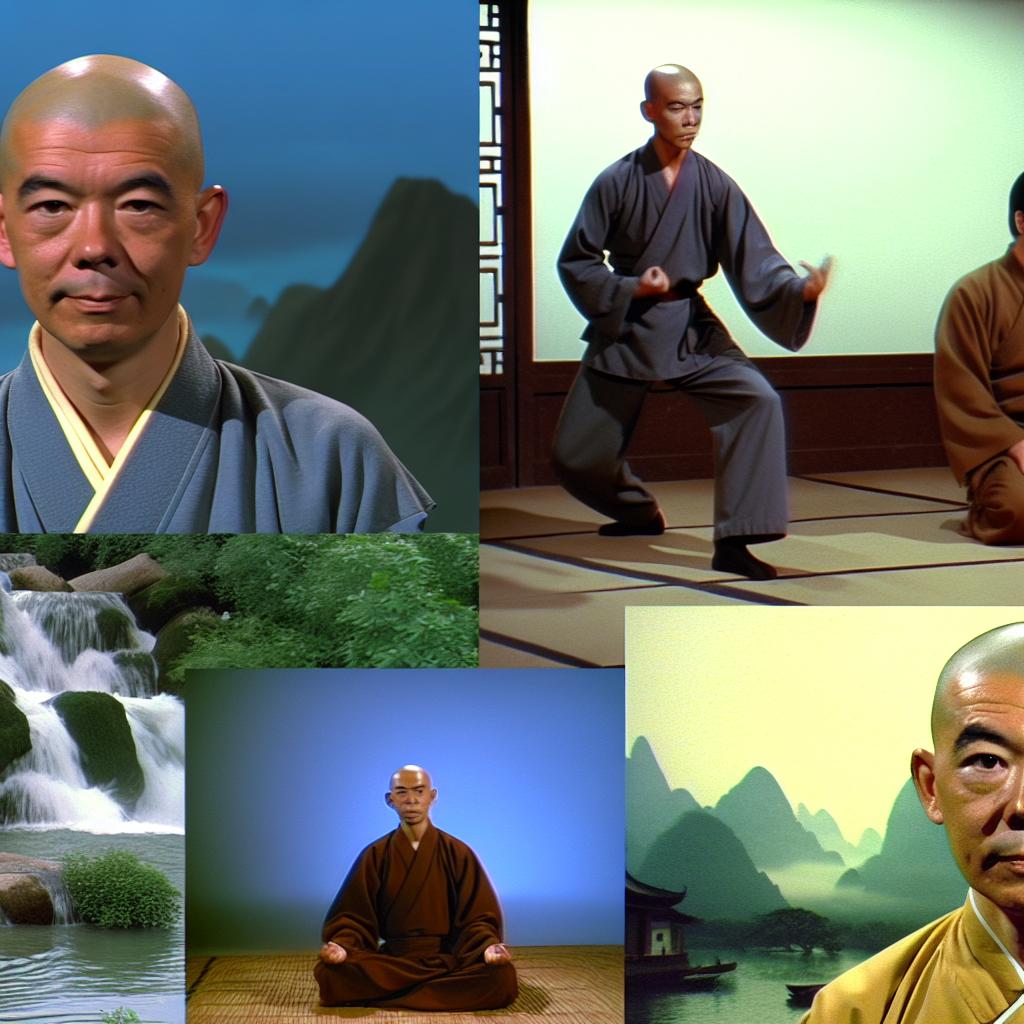
The Premiere Episode: “King of the Mountain”
The premiere episode of the original Kung Fu series, titled “King of the Mountain,” serves as a quintessential beginning for this iconic show. It introduces the viewers to Kwai Chang Caine, the central character portrayed by David Carradine. The storyline of this episode follows Caine, a Shaolin monk equipped with outstanding martial arts skills, as he maneuvers through the challenges posed by the American Old West. This foundational episode is pivotal in setting the tone for the series, weaving together themes of justice and introspection that are integral to Caine’s character arc development throughout the series.
Caine’s journey is one of a spiritual and moral quest, balancing the disciplined teachings of the Shaolin Temple with the chaotic and often morally ambiguous landscape of the American frontier. The episode “King of the Mountain” presents Caine grappling with these challenges, providing viewers an insight into how these early experiences shape his character. His encounters with various characters in the Old West reveal both his external prowess and his inner spiritual depth.
“The Way of Violence Has No Mind”
In the episode titled “The Way of Violence Has No Mind,” Caine extends his helping hand to a family in trouble. This episode is particularly notable for its contrast between high-intensity action scenes and deep philosophical reflections. While assisting the endangered family, Caine exemplifies the philosophy of non-violence inherent in his Shaolin training. Through his interactions, viewers gain a greater understanding of his commitment to these principles despite living in a world that often values brutality over peace.
Caine’s role within this narrative is not merely as a savior or hero but as a mentor. His teachings about non-violence resonate deeply with the family and offer a perspective that transcends mere physical self-defense. The narrative also highlights Caine’s patience and wisdom, emphasizing his dedication to imparting lessons learned from the Shaolin monks to those he encounters. As a result, “The Way of Violence Has No Mind” becomes a significant keystone for understanding the philosophical foundations of the series.
“Alethea”
The episode “Alethea” digs deeper into Caine’s past, focusing on his life in China before venturing to America. This exploration provides a richer context for his character, underscoring his intrinsic connection to the Shaolin training that shaped his identity. “Alethea” is an introspective episode, with flashbacks that illustrate Caine’s internal struggles to reconcile his past with his present.
Caine’s journey in this episode resonates with many immigrants’ experiences, as he grapples with his heritage while forging a new path in a foreign land. The narrative serves to deepen understanding of Caine’s motivations, highlighting the myriad challenges faced by immigrants. As Caine strives to uphold the principles and virtues learned in the Shaolin Temple, viewers are offered a glimpse into both his strength of character and the vulnerabilities that make him relatable.
“The Soul Is the Warrior”
A key theme throughout the Kung Fu series is the internal battle between adhering to one’s values and the external temptations that may lead one astray. This theme is front and center in the episode titled “The Soul Is the Warrior.” The narrative here follows Caine as he encounters a man who sees the potential to exploit Caine’s martial arts skills for personal gain.
Within this episode, viewers witness Caine’s engagement with a profound ethical dilemma, one that tests his ability to remain true to the virtues instilled in him. His decisions in this episode underscore a recurring motif in the series: that of ethical dilemmas and the importance of aligning one’s actions with one’s moral compass. The episode’s exploration of these themes offers nuanced insights into the complex moral landscape navigated by Caine, reinforcing the show’s philosophical underpinnings.
“Dark Angel”
The episode “Dark Angel” is perhaps most notable for featuring a special guest appearance by John Carradine, the real-life father of David Carradine. In “Dark Angel,” Caine confronts a Confederate colonel entangled in a moral crisis borne from his actions during the war. This encounter is significant as it probes deeply into themes of redemption and personal transformation.
Caine’s presence in this narrative acts as a catalyst for change. The episode examines how personal demons can haunt individuals long after the actions have been taken, and how pathways to redemption are often fraught with emotional complexity. John Carradine’s performance adds a profound layer to the narrative, enriching the portrayal of the colonel’s turbulent struggle for absolution. His dynamic with Caine reflects the central theme of redemption, with Caine serving as both a mirror and a guide for those seeking atonement.
The original Kung Fu series stands as a testament to the intricate interplay between martial arts action and philosophical storytelling. The episodes mentioned serve to illustrate the enduring legacy of the show and the multifaceted nature of Kwai Chang Caine’s character. His adventures in the Old West are as much about physical survival as they are about spiritual enlightenment, showcasing a balance between action and introspective exploration that has captivated audiences since its premiere. Through the actions and reflections of Caine, viewers are invited to ponder broader questions about morality, identity, and the pursuit of peace in a turbulent world.
This article was last updated on: March 15, 2025

